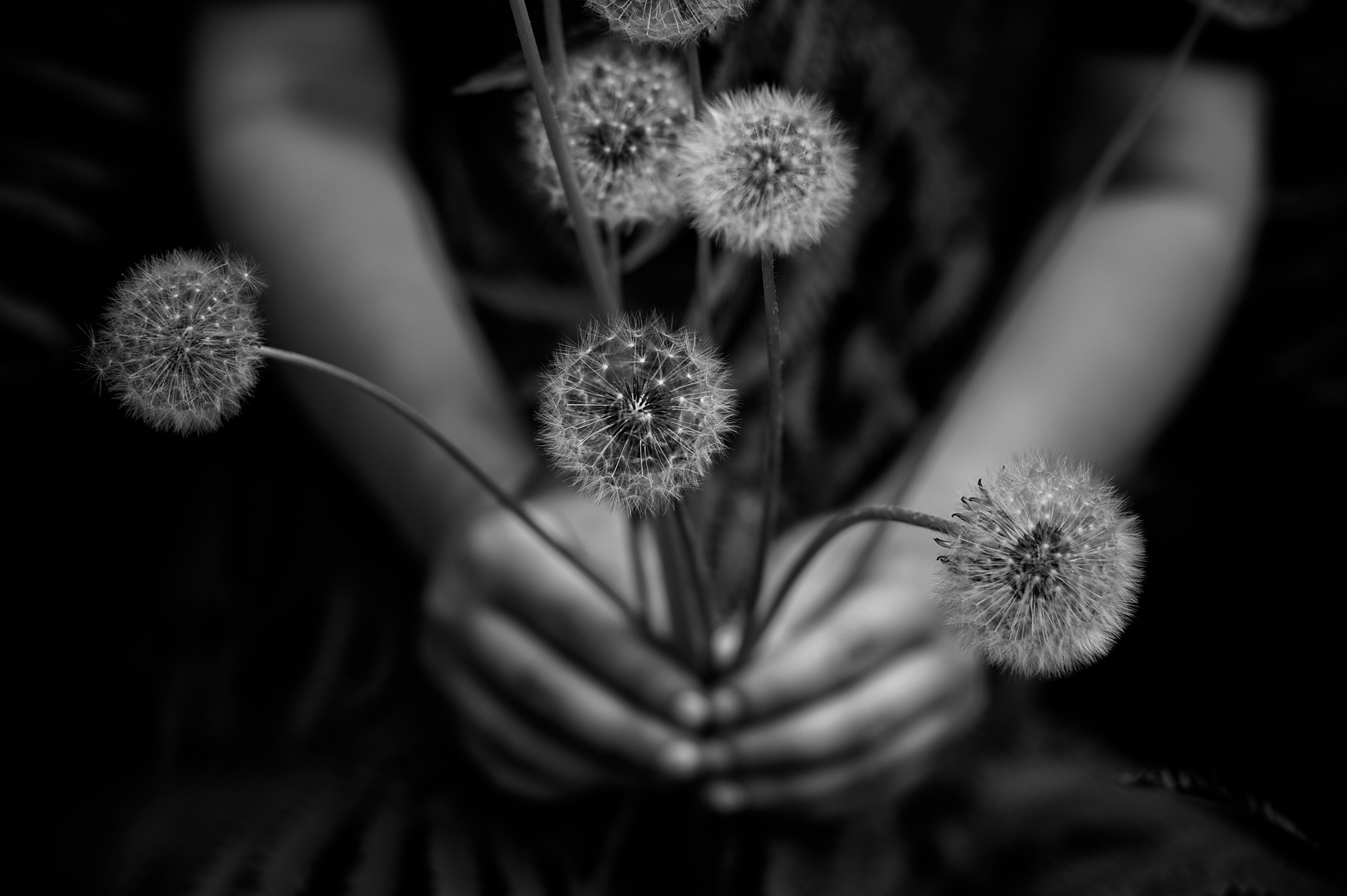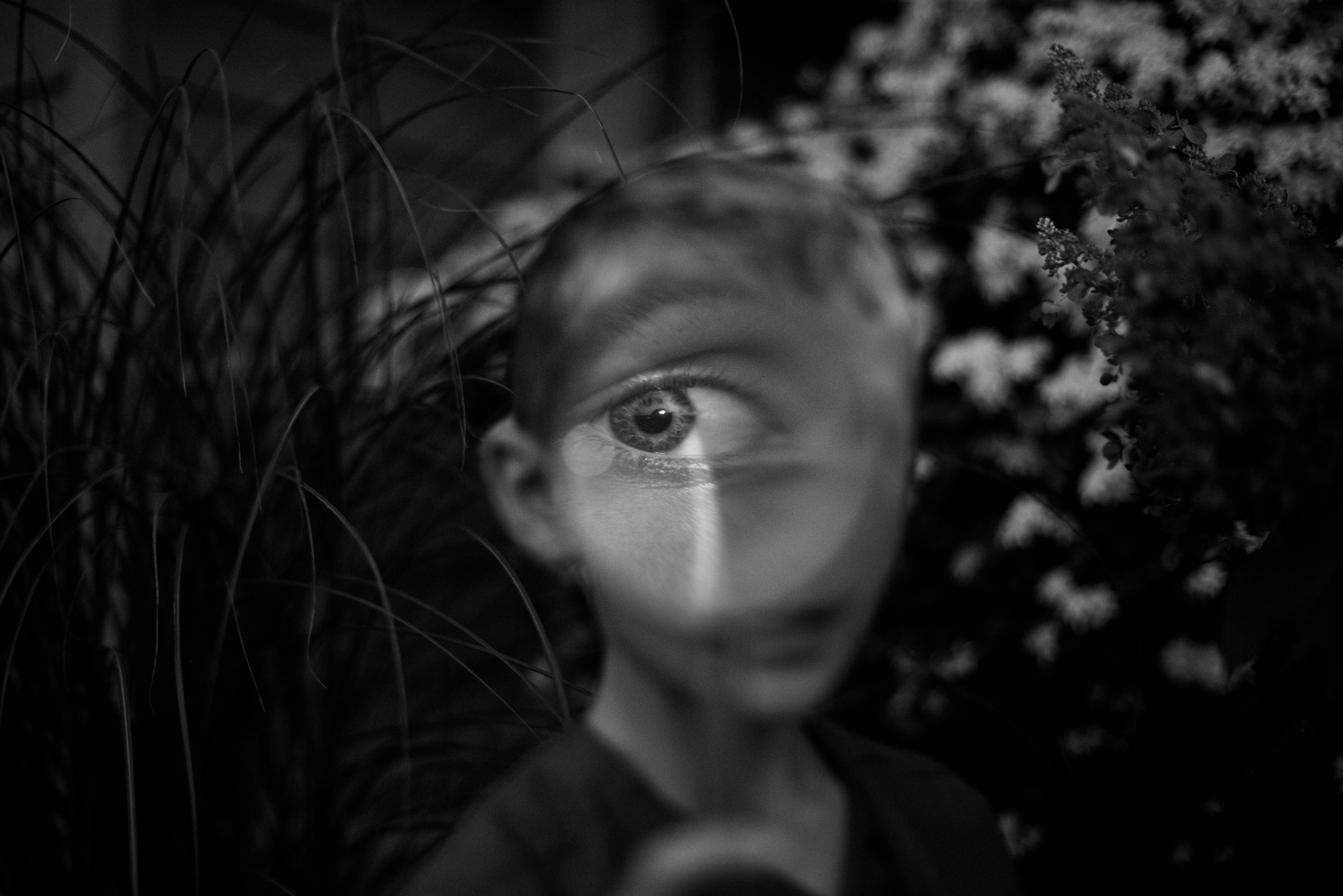"Wild Onions"
Lets start this off right: her name is pronounced Tie-shuh, and she has definitely been making her name known in the photography world. Originally from the Watson, Illinois area, Tytia grew up on a small working farm and then spent the majority of her adult life in the Cayman Islands. She holds degrees in horticulture and landscape architecture and is a self-taught photographer. Tytia’s black and white photographs are full of mystery and child like wonder that keeps the viewer coming back for more. She has been published in Shots Magazine, Fraction Magazine, Lenscratch, and National Geographic (just to name a few!). Her most recent and exciting news is her work is shortlisted for the Black and White Photographer of the Year 2015 sponsored by Leica.
"Anna"
- While your degrees are not in the photography field, it still feels like they play a part in your photography. Can you tell us a little about how they influence you as an artist?
TH: I feel like it’s all very intertwined: my upbringing, my degrees, my photography. I’m not sure how or what I would shoot without the background I have. I love the outdoors, plants, animals, the earth,….pretty much anything nature related. My upbringing on a farm and being surrounded by fields of corn, soybeans and wheat and living on the edge of a large woods, I was always immersed in nature. That led me to seeking out degrees in both horticulture and landscape architecture, which I both dearly love, but neither of those degrees clicked with me the way photography did. As soon as I started photography, I knew, I just knew it’s what I wanted to do for the rest of my life if possible. If you have a look at my portfolio, my images are mostly nature related. Even when I do portraits, I try to incorporate nature into them somehow. Both degrees gave me a deep knowledge of how man relates to nature and the many hurdles we need to overcome concerning that relationship. We try and fight nature, to conquer it. That isn’t our path. We’re on the wrong path. One day we will all come to our senses whether it’s from our own accord or we’re forced into it. I truly believe we take care of what we love, and if we can all love nature again, all of nature, even the unlovable parts of it, we’ll get on the right path. If my photography can help even the tiniest bit to make even one person appreciate nature more, I’ve succeeded. One of my favorite quotes is “Our greatest responsibility is to be good ancestors.” Jonas Salk
"Saved"
- How did you become involved in photography?
TH: It was a happy accident really. I never had any interest in photography previously even though my older brother graduated with a photography degree. I was in my last year at university working towards my landscape architecture degree and I had some electives I needed to fill. I happened to find an intro to photography class that fit into my schedule and it was in a building very near the architecture buildings so it was convenient. I thought it would be a fun, easy class to round out my schedule. Little did I know I would almost immediately become obsessed with it. I spent ever spare minute in the darkroom and my other classes kind of fell by the wayside. My intro to photography class suddenly had first billing! My last semester I took the follow up class as well, and that ended my official training in photography. Everything else has been self taught.
"Rhubarb"
- Your photographs of your son and his friends capture the excitement and discovery we all had as children. When you are photographing them how much of it is instinctual versus planned? Do you set up the scene or do you always have camera handy & ready?
TH: I always have the camera ready. Planning a scene with my son doesn’t work and trust me, I’ve tried. I finally realized my folly and gave that up long ago. Plus, the things he does on his own are so much more interesting than anything I could come up with. That’s not to say I don’t facilitate the photographs. I’ll take him for a walk or we’ll go down to the river, because I know he’ll always do something interesting. I plan a lot of the trips in the late afternoon so I have good light. From time to time, he’ll do something that I’ll miss and I’ll ask him to do it again. He doesn’t do it for my photo though. He does it because it’s fun. I’ll also gently suggest he play where there is beautiful light. Sometimes he’ll oblige, sometimes he won’t, but I don’t push it. When it comes to playing, he does what he wants to in the end, and that’s how it should be.
"Go"
- What motivates and inspires you to create art?
TH: Three simple things: family, nature and hope. I hope I can make some sort of difference in the world through my photography. Grand aspirations, I know, but why not dream big right?
"Wishing Weeds"
- What do you think makes a memorable photograph?
TH: I can only speak for myself, but what makes a photograph memorable to me is if it makes me feel something. It could be happy, sad, perplexed, whatever, but if I feel something, I’ll more than likely remember it.
"Eye Spy"
- You recently attended Filter Photo Fest in Chicago; can you share a few experiences you had while you were there?
TH: Filter was my very first photo fest and I thoroughly enjoyed it. I can’t recommend it enough. It was totally out of my comfort zone since I’m a major homebody, but it was great. I was finally able to meet many photographers I’ve known only through social media and admired from afar. It was very cool to put a real face to a profile picture! I took two amazing workshops, one by Aline Smithson and the second by Elizabeth Avedon. I learned more in those two days than I’ve learned in the entire last year! Great classes and great instructors. I also did the portfolio reviews, which was fairly scary, but nothing horrible happened like my mind had imagined would. All the reviewers were very kind and helpful. I do have to add that everyone absolutely loved my black and white prints and wanted to know who printed them…..I have the BEST printer!







